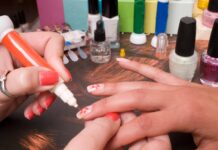Biting your nails is a common habit that many people have, whether it’s due to stress, boredom, or simply out of habit. While it may seem harmless, there is a potential risk of contracting worms from biting your nails. In this blog post, we will explore the question: can you get worms from biting your nails?
First and foremost, it’s important to understand how worms can be transmitted. Worms, specifically pinworms, are parasitic organisms that can infect the human body through ingesting their eggs. These eggs are typically found on contaminated surfaces, such as unwashed hands or under fingernails. When a person bites their nails, they may inadvertently ingest these eggs, leading to a potential worm infection.
To break it down, here are some steps that can lead to getting worms from biting your nails:
1. Contaminated fingers: If you touch a surface that has pinworm eggs and then bite your nails, you are at risk of ingesting the eggs.
2. Poor hygiene: Not washing your hands regularly can increase the likelihood of transferring pinworm eggs to your mouth.
3. Nail biting habit: Continuously biting your nails can make it easier for the eggs to enter your digestive system.
To prevent the risk of getting worms from biting your nails, here are some practical tips:
1. Practice good hand hygiene: Wash your hands frequently with soap and water, especially before eating or touching your face.
2. Avoid biting your nails: Try to break the habit by keeping your nails trimmed or using bitter-tasting nail polish.
3. Keep your surroundings clean: Regularly clean surfaces that may be contaminated with pinworm eggs, such as doorknobs, light switches, and countertops.
While it may be tempting to continue biting your nails, the potential consequences of contracting worms should be enough to inspire a change in behavior. By taking proactive steps to improve your hand hygiene and break the nail-biting habit, you can reduce the risk of getting worms.
In conclusion, the answer to the question “can you get worms from biting your nails?” is yes, there is a potential risk. However, by practicing good hand hygiene, breaking the nail-biting habit, and maintaining a clean environment, you can minimize this risk. Remember, prevention is always better than treatment when it comes to parasitic infections. Stay safe and keep those nails out of your mouth!












